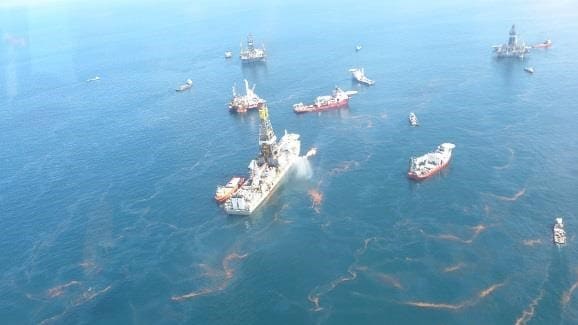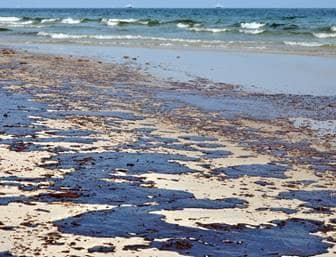At a glance
The 2010 Deepwater Horizon (DWH) explosion caused the largest marine oil spill in history. CDC and state and local health departments conducted multiple CASPERs to assess general and mental health needs of coastal communities in Alabama and Mississippi. Data from these CASPERs supported the continued need for mental health services and programs along the coast.

Background
On April 20, 2010, the Deepwater Horizon (DWH) drilling unit exploded off the coast of Louisiana. This resulted in 11 deaths and the largest marine petroleum release in history. A few months after the explosion, CDC collaborated with state and local health departments to conduct multiple CASPERs.
Objectives
The goals of the initial CASPERs in 2010 were to assess the physical and mental health concerns of the affected Gulf Coat communities. Because mental health needs continue to evolve following disasters and anecdotal reports continued in the communities, we repeated the CASPERs one year later.
The goals of the CASPERs in 2011 were the following:
- Better understand physical and mental health effects a year after the event
- Evaluate effectiveness of the increased mental health services
- Plan future outreach
- Assess emergency preparedness planning in the community

Key results
- 82%–91% of households with pets planned on taking their pets with them during an evacuation
- 9%–15% of individuals self-reported symptoms of depression in 2011 compared to 15%–26% in 2010
- 13%–20% of individuals self-reported symptoms consistent with anxiety disorder compared to 21%–32% in 2010
- 13%–18% of individuals self-reported 14 or more mentally unhealthy days in the past 30 days compared to 16%–23% in 2010
Outcome
The 2010 CASPERs helped state and local health departments obtain grants to increase mental health services in the affected communities. The 2011 CASPERs provided an opportunity to assess the mental health of those affected and evaluate their mental health services.
Data suggested that Gulf Coast households reported fewer symptoms of depression and anxiety in 2011 than in the months immediately following the oil spill. However, households still reported more symptoms than before the oil spill in 2009. CASPER data supported the continued need for mental health services and programs along the coast. Data also informed updated preparedness planning for future human-induced and natural disasters.
Additional information
Reports on the CASPERs related to the DWH oil spill are available online: http://www.adph.org/CEP/assets/CASPERReport2011 and https://www.ncbi.nlm.nih.gov/pmc/articles/PMC4570265
